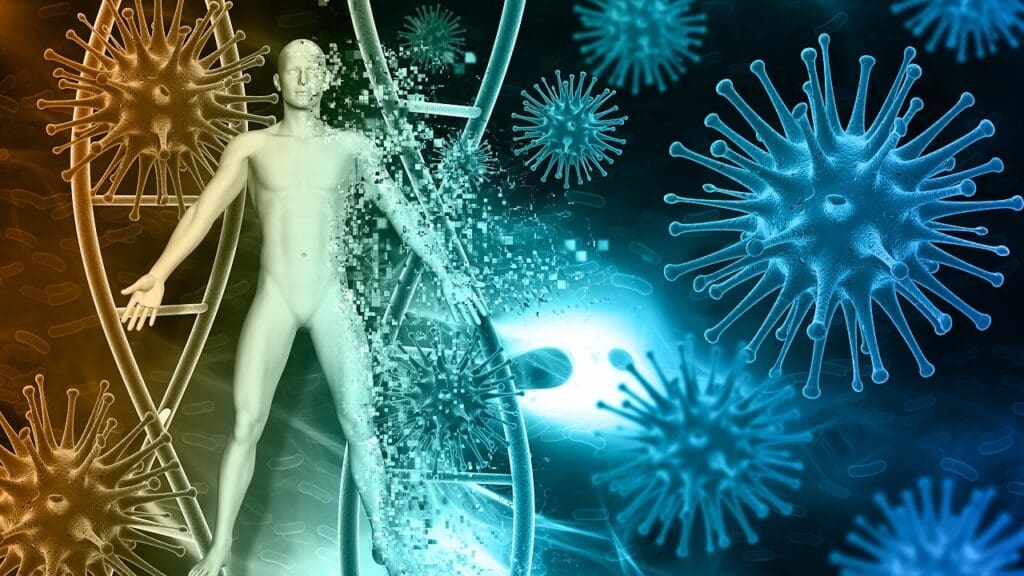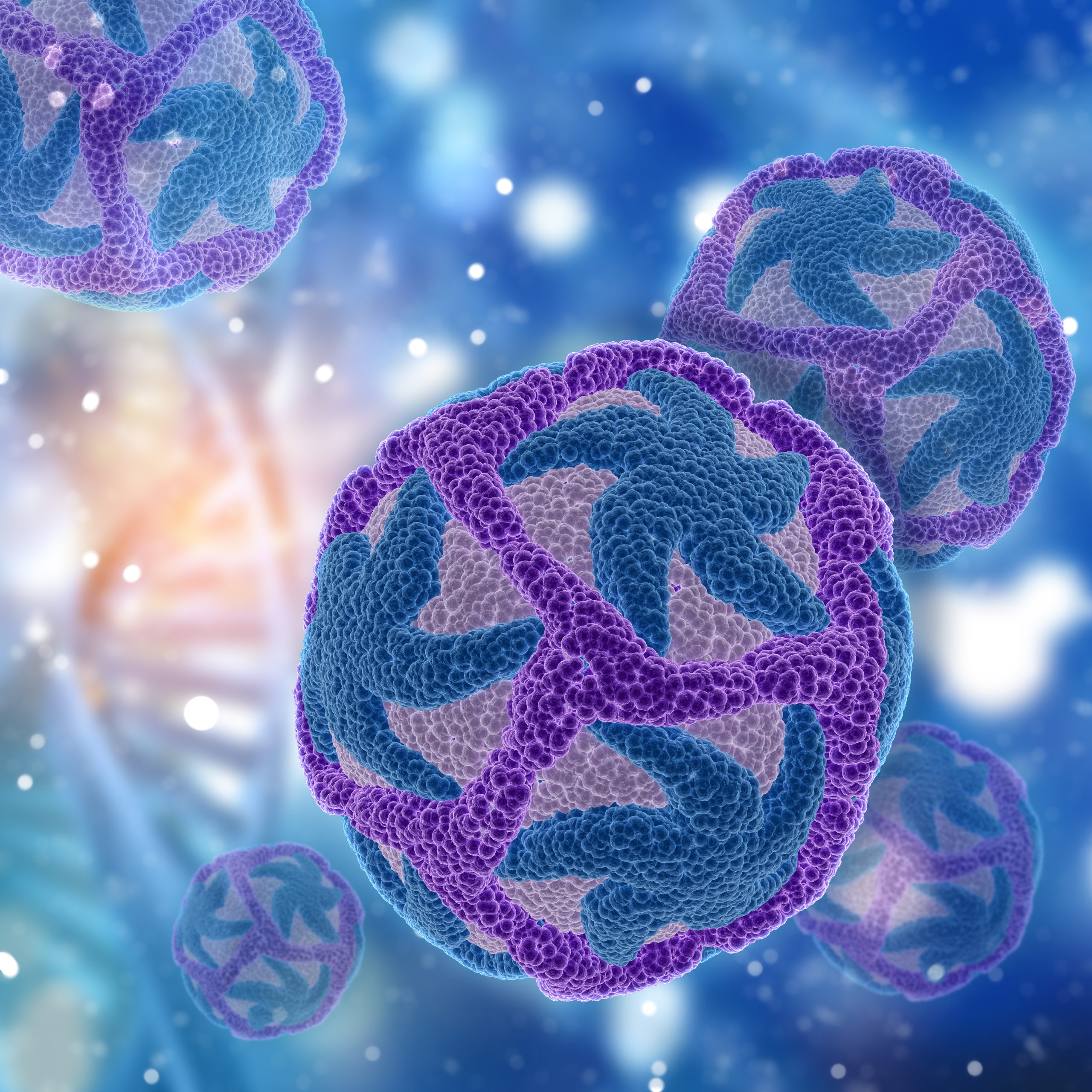Last Updated on November 27, 2025 by Bilal Hasdemir

At Liv Hospital, we lead in a new way to fight and prevent cancer. Cancer prevention vaccines are making a big change in how we treat cancer. We’re dedicated to giving our patients the best in medical care.
We use vaccines for cancer to teach the immune system to find and kill cancer cells. This method is very promising for lowering cancer rates and better treatment results. By learning how the immune system fights cancer, we can make treatments more effective.
Key Takeaways
- Cancer prevention vaccines are a promising approach to reducing cancer incidence.
- Vaccines for cancer work by training the immune system to recognize and destroy cancer cells.
- Immunization for cancer is a rapidly evolving field with significant promise.
- We are committed to providing the latest advancements in medical care for cancer treatment and prevention.
- Cancer vaccination is a key part of our complete healthcare services.
Understanding Cancer and the Immune System
It’s important to know how cancer cells and the immune system interact. The immune system fights off harmful cells, including cancer. But sometimes, cancer cells can slip past this defense.
Cancer cells use tricks to hide from the immune system. They change their outer proteins to avoid being seen. They also create a shield around themselves that stops immune cells from working.
How Cancer Cells Evade Natural Immune Responses
Cancer cells have ways to avoid being attacked by the immune system. One method is by using checkpoint molecules. These molecules stop T cells, which are key in fighting cancer, from attacking.
They also release molecules that weaken the immune response. This creates a safe zone for cancer cells, protecting them from being destroyed.
The Role of Immunotherapy in Modern Cancer Treatment
Immunotherapy is a big step forward in cancer treatment. It boosts the immune system’s fight against cancer. There are different types, like checkpoint inhibitors, vaccines, and adoptive T cell therapy.
Checkpoint inhibitors remove the signals that cancer cells use to hide. This lets the immune system fully attack cancer. Vaccines help the immune system recognize and fight cancer cells.
| Immunotherapy Type | Description | Mechanism |
|---|---|---|
| Checkpoint Inhibitors | Drugs that block inhibitory signals | Enhance T cell activity |
| Cancer Vaccines | Vaccines that stimulate immune response | Stimulate recognition of cancer cells |
| Adoptive T cell Therapy | Treatment involving the transfer of T cells | Directly target and kill cancer cells |
The Science Behind Immunization for Cancer
Cancer immunization is a new way to fight cancer. It uses the body’s immune system to stop and treat cancer. It teaches the immune system to find and fight cancer cells.
Training the Immune System to Recognize Cancer Cells
The immune system can find and kill bad cells. But cancer cells hide from it. Cancer immunization helps the immune system see these cells better.
This is done with immunotherapy. It makes the immune system better at finding and attacking cancer cells.
Differences Between Traditional Vaccines and Cancer Immunization
Traditional vaccines stop diseases by teaching the immune system to fight them. Cancer immunization trains the immune system to attack cancer cells. It can prevent and treat cancer.
Preventive vs. Therapeutic Approaches
Preventive vaccines stop cancer before it starts. They target viruses that can cause cancer, like HPV and Hepatitis B. Therapeutic vaccines treat cancer by making the immune system stronger.
Both types are important in the fight against cancer. They offer hope for better cancer prevention and treatment.
Preventive Cancer Vaccines: Is There a Vaccine for Cancer?
The search for a cancer vaccine has led to big steps in medicine. We’ve learned how some vaccines can stop certain cancers. The Human Papillomavirus (HPV) vaccine and the Hepatitis B vaccine are key examples.
HPV Vaccine: The Shot That Prevents Cervical Cancer
The HPV vaccine is a major tool against cervical cancer. It targets HPV strains that cause cervical cancer. Studies show a big drop in HPV-related cervical lesions in vaccinated groups.
Hepatitis B Vaccine and Liver Cancer Prevention
The Hepatitis B vaccine is key in stopping liver cancer. Hepatitis B virus (HBV) infection is a big risk for liver cancer. By stopping chronic HBV infection, the vaccine helps prevent liver cancer.
Evidence That Vaccines Prevent Cancer
More evidence shows vaccines can stop cancer. The HPV and Hepatitis B vaccines are proof of this. Key evidence includes:
- Big drop in cervical cancer cases in HPV-vaccinated groups
- Less liver cancer after Hepatitis B vaccination
- Research on other cancer-preventing vaccines
This shows how important vaccines are in fighting cancer. As research goes on, we’ll see more vaccines for different cancers.
Understanding vaccines’ role in cancer prevention is key. It shows the power of these medical breakthroughs to save lives. The creation and use of cancer vaccines are big steps in our fight against cancer.
How Cancer Prevention Vaccines Work
Cancer prevention vaccines are key in the fight against cancer. They help lower cancer risk by using the body’s immune system. This approach stops cancer-causing infections and diseases.
Targeting Cancer-Causing Viruses
These vaccines mainly target viruses that cause cancer. For example, the HPV vaccine fights strains of the human papillomavirus. This virus can lead to cervical, anal, and other cancers. The Hepatitis B vaccine also protects against a virus that can cause liver cancer.
Stimulating Specific Immune Responses
Cancer prevention vaccines boost the immune system to fight specific cancer-causing agents. They introduce antigens that spark an immune response. This prepares the body to defend against future infections.
Long-term Protection Mechanisms
These vaccines offer long-term protection by keeping the immune system ready for future threats. They help the body quickly and effectively respond to viruses or cancer cells it has seen before.
| Vaccine | Cancer Targeted | Mechanism |
|---|---|---|
| HPV Vaccine | Cervical, Anal, Other Cancers | Targets HPV strains |
| Hepatitis B Vaccine | Liver Cancer | Guards against Hepatitis B virus |
Therapeutic Cancer Shots and Injection Treatments
Therapeutic cancer vaccines are a new hope in fighting cancer. They help the immune system fight cancer cells. This is a big step forward for patients with tumors.
Cancer Injection Treatments for Existing Tumors
Cancer injection treatments, like vaccines, target tumors. They boost the immune system to fight cancer cells. Key benefits include:
- Targeted approach to cancer treatment
- Potential for fewer side effects compared to traditional therapies
- Ability to stimulate long-term immune memory
Delivery Methods and Administration Protocols
There are different ways to give therapeutic cancer vaccines. Some common methods are:
- Direct injection into the tumor
- Intramuscular or subcutaneous injections
- Combination with other immunotherapies
Researchers are always working to make these methods better. They aim to improve how well they work and the outcomes for patients.
Personalized vs. Universal Cancer Shots
Therapeutic cancer vaccines can be either personalized or universal. Personalized cancer shots are made just for one patient. They match the unique tumor characteristics. On the other hand, universal cancer shots work for many people with the same type of cancer.
Personalized vaccines might work better but are harder and take longer to make. Universal vaccines are easier to get but might not work for everyone.
We are dedicated to improving cancer vaccines. We want to give our patients the best treatments available.
Types of Anti-Cancer Vaccines in Development
The field of cancer immunotherapy is growing fast. Many vaccine types are being developed. Each one has its own way of fighting cancer.
Several types of anti-cancer vaccines are being developed, including:
- Antigen-Based Cancer Vaccines
- Whole Cell Cancer Vaccines
- Dendritic Cell Vaccines
- Vector-Based Cancer Vaccines
Antigen-Based Cancer Vaccines
Antigen-based cancer vaccines target specific proteins on cancer cells. They help the immune system learn to fight cancer cells better.
Whole Cell Cancer Vaccines
Whole cell cancer vaccines use cancer cells from the patient or a tumor cell line. They aim to trigger a wide immune response by showing many tumor antigens.
Dendritic Cell Vaccines
Dendritic cell vaccines take dendritic cells from the patient’s blood. They load these cells with tumor antigens and then put them back into the patient. This method has shown to boost the immune system against cancer.
Vector-Based Cancer Vaccines
Vector-based cancer vaccines use a virus or vector to carry genetic material into cells. This genetic material encodes tumor antigens. It aims to start both humoral and cellular immune responses against cancer.
These different ways of making cancer vaccines show the field’s complexity and innovation. As research goes on, we’ll see more progress in fighting cancer.
Innovative Technologies in Cancer Vaccination
New methods in cancer vaccination are changing how we treat cancer. We’re seeing a big move towards more precise and powerful treatments. These use the latest tech to help patients get better.
mRNA-Based Cancer Vaccines
mRNA-based cancer vaccines are a big step forward in fighting cancer. They introduce genetic material that tells cells to make a specific antigen found in tumors. This triggers an immune response that goes after cancer cells. The quick production and flexibility of mRNA vaccines make them very promising for different cancers.
Tumor Antigen Delivery Systems
Getting tumor antigens to the immune system is key for a strong response. New delivery methods are being tested to better present these antigens. Things like nanoparticles and viral vectors are being looked at to boost the immune attack on tumors.
Combination Approaches with Checkpoint Inhibitors
Using cancer vaccines with checkpoint inhibitors is showing great promise. Checkpoint inhibitors help the immune system fight cancer more effectively. Together, they can make the immune response stronger and help patients more. Studies are showing good results with this combination.
| Innovative Technology | Description | Potential Benefits |
|---|---|---|
| mRNA-Based Vaccines | Use mRNA to encode tumor antigens | Rapid production, flexibility, targeted immune response |
| Tumor Antigen Delivery Systems | Enhance antigen presentation to the immune system | Improved immune response, targeted therapy |
| Checkpoint Inhibitors | Release brakes on the immune system | Enhanced anti-tumor response, improved patient outcomes |
As research keeps going, these new technologies are very hopeful for cancer treatment’s future. By combining immunization with other treatments, we’re getting closer to better cancer therapies.
Shots for Cancer Patients: Current Clinical Applications
Cancer vaccines are being studied for treating and preventing different cancers. We see big steps forward in immuno-oncology. Cancer vaccines are showing great promise in clinical trials for many cancers.
Melanoma Vaccine Developments
Melanoma, a skin cancer, is a key area for vaccine research. Vaccines targeting melanoma have shown great results in trials. They help the immune system fight melanoma cells.
Pancreatic Cancer Immunization Research
Pancreatic cancer, with its poor outlook, is also being studied. Researchers aim to find vaccines that target pancreatic cancer cells. They hope to improve survival rates and treatment success.
Breast and Prostate Cancer Vaccine Trials
Breast and prostate cancers are also in the vaccine spotlight. Clinical trials are underway to check if these vaccines work. They could lead to better treatments for these cancers.
Patient Selection and Treatment Protocols
Choosing the right patients for vaccine treatment is key. Identifying the right candidates depends on many factors. These include the cancer type and stage, and the patient’s health. Treatment plans are being improved to make vaccines more effective.
As we learn more about cancer vaccines, we’re getting closer to better treatments for cancer patients worldwide.
Liv Hospital’s Approach to Cancer Vaccination
Liv Hospital’s team is all about personalized cancer care. They use advanced vaccination techniques. Each patient gets care that fits their needs.
Multidisciplinary Cancer Care Team
Our team includes oncologists, immunologists, surgeons, and nurses. They work together to create effective treatment plans. This teamwork ensures patients get the best care at every step.
Access to Innovative Cancer Immunization Therapies
At Liv Hospital, we’re always exploring new cancer treatments. Our patients get to try the latest clinical trials and therapies. This gives them a strong chance of successful treatment.
Patient-Centered Treatment Planning
We know every patient’s cancer journey is different. Our approach focuses on each patient’s unique needs and preferences. We aim to care for both their physical and emotional health.
International Standards and Ethical Practices
Liv Hospital follows the highest international standards in cancer care. We’re dedicated to safe, effective, and compassionate care. Our patients receive the best treatment possible.
With a team approach, access to new therapies, and a focus on each patient, Liv Hospital offers top-notch cancer vaccination services. We support patients every step of the way.
Conclusion: The Future of Cancer Prevention Through Immunization
Immunization is a key hope in fighting cancer. Vaccines against viruses like HPV and HBV have cut cancer cases. A big study showed the HPV vaccine cut cervical cancer by half.
The fight against cancer will get stronger with new vaccines. We’re getting closer to a time when vaccines will be a big part of cancer treatment. For updates on cancer research and vaccines, check out Journal of Hematology & Oncology.
We’re all about top-notch healthcare for everyone, including international patients. As cancer vaccines improve, we’re ready to use them to change how we prevent and treat cancer.
FAQ
What is immunization for cancer, and how does it work?
Immunization for cancer uses vaccines and injections to fight cancer. It works by making the body’s immune system attack cancer cells. This helps prevent and treat cancer.
Are there vaccines available that can prevent cancer?
Yes, some vaccines can prevent certain cancers. For example, the HPV vaccine can stop cervical cancer. The hepatitis B vaccine can prevent liver cancer. We recommend these vaccines to help prevent cancer.
How do cancer prevention vaccines work?
These vaccines target viruses that cause cancer. They make the immune system ready to fight cancer. This way, they help prevent cancer from happening.
What is the difference between preventive and therapeutic cancer vaccines?
Preventive vaccines stop cancer from starting. Therapeutic vaccines treat cancer that already exists. We use both types based on the patient’s needs.
What are the benefits of therapeutic cancer shots and injection treatments?
These treatments help fight existing tumors by boosting the immune system. They can be tailored to fit the patient’s specific cancer type.
Are there different types of anti-cancer vaccines in development?
Yes, many types are being developed. These include antigen-based, whole cell, dendritic cell, and vector-based vaccines. We’re exploring new ways to fight cancer.
What are the latest advancements in cancer vaccination technologies?
New technologies include mRNA-based vaccines and tumor antigen delivery systems. These advancements aim to improve cancer treatment and prevention.
Can cancer vaccines be used in combination with other treatments?
Yes, vaccines can be used with other treatments like checkpoint inhibitors. We create personalized treatment plans to help patients.
How does Liv Hospital approach cancer vaccination?
Liv Hospital uses a team approach to cancer vaccination. We offer innovative therapies and focus on patient-centered care. Our goal is to provide the best treatment options.
Are cancer vaccines available for all types of cancer?
Not all cancers have approved vaccines yet. But, we’re working hard to develop new vaccines for different cancers.
How can I learn more about cancer vaccines and immunization?
Talk to our healthcare professionals to learn more. We offer personalized advice and support for patients facing cancer.
References
- Nature: https://www.nature.com/articles/d41586-024-00841-y
- Cancer Research Institute (CRI): https://www.cancerresearch.org/immunotherapy-by-treatment-types/cancer-vaccines
- National Center for Biotechnology Information (NCBI) / PMC: https://pmc.ncbi.nlm.nih.gov/articles/PMC10486481/
- American Association for Cancer Research (AACR): https://www.aacr.org/blog/2024/06/28/what-is-a-cancer-vaccine/








